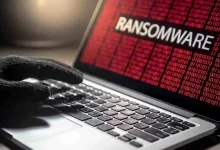How To Secure PBX Systems From Cyberattacks
The National Cyber Security Centre (NCSC) in the UK has issued a comprehensive blog aimed at educating individuals and organizations about safeguarding Private Branch Exchange (PBX) systems from cyber threats. PBX systems, commonly used by small organizations to manage telephone communications internally, are increasingly vulnerable to cyberattacks if not properly protected.
PBX systems serve as private telephone networks interconnected with the internet, facilitating the management and routing of incoming and outgoing calls within an organization.
Offering features such as call forwarding, voicemail, and conference calling, PBX systems enhance communication efficiency. However, their integration with the internet exposes them to potential cyber threats.
Why Protecting PBX Systems Matters
One significant risk highlighted by the NCSC is the potential for cybercriminals to exploit misconfigured PBX systems for fraudulent activities like ‘dial-through fraud.’
This involves rerouting calls to premium-rate overseas numbers or setting up scam lines, resulting in financial losses for the organization.
Moreover, compromised PBX systems can be weaponized to conduct Denial of Service (DoS) attacks against other entities, highlighting the importance of securing PBX infrastructure.
The need for securing PBX systems is highlighted by the escalating cyber threat landscape. Cyberattacks targeting communication networks, including malware incursions, data breaches, and Distributed Denial of Service (DDoS) attacks, have been on the rise globally. According to reports, these attacks could result in substantial financial losses, with estimates reaching up to US$10.5 trillion annually by 2025.
Despite the potential financial implications, many organizations overlook investing in cybersecurity, leaving themselves vulnerable to exploitation by malicious actors.
NCSC Guidance for Protecting PBX Systems
To mitigate these risks, the NCSC emphasizes the adoption of proactive security measures outlined in their guidance. Regardless of whether the PBX system is managed internally or through a cloud-based service, organizations can enhance security by implementing robust authentication mechanisms, such as two-step verification, and enforcing the use of strong passwords for system access.
Moreover, organizations are reminded of their responsibility as PBX owners to thoroughly review contractual agreements with PBX providers to mitigate financial liabilities arising from cyber incidents.
Understanding the terms and conditions, especially regarding liability for misconfigurations and security breaches, is essential to avoid unexpected financial consequences.
In the event of a suspected compromise, the NCSC advises organizations to promptly notify their PBX provider and financial institutions. Reporting incidents to authorities, such as Action Fraud or local law enforcement agencies, not only facilitates incident response but also aids in combating cybercrime on a broader scale.
The release of this guidance highlights the NCSC’s commitment to promoting cybersecurity awareness and resilience among individuals and organizations. By equipping stakeholders with the knowledge and tools necessary to protect PBX systems, the NCSC aims to contribute to a safer online environment for all.
Media Disclaimer: This report is based on internal and external research obtained through various means. The information provided is for reference purposes only, and users bear full responsibility for their reliance on it. The Cyber Express assumes no liability for the accuracy or consequences of using this information.




